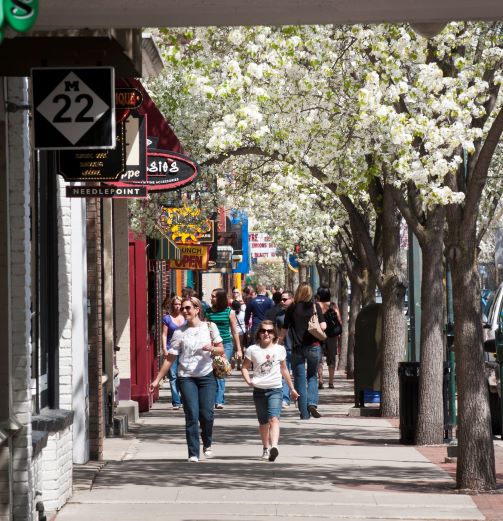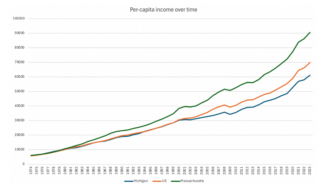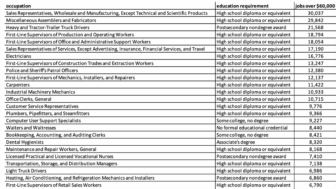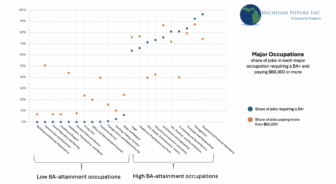In today’s economy, the reality is talent attracts capital and quality of place attracts talent. Where young talent goes, high-growth, high-wage, knowledge-based enterprises follow, expand, and are created. Because talent is the asset that matters most to high-wage employers and is in the shortest supply, the new path to prosperity is concentrated talent – and the key to concentrating talent is vibrant communities.
Transformative placemaking should be the driving force for successful economic development.The key to growing high-wage jobs in Michigan is attracting college-educated and skilled members of Generation Z after they finish their education. Michigan cannot get prosperous again until and unless we become a talent magnet for these young people. Focusing on traditional economic development priorities while failing to concentrate young talent in the state will ensure Michigan remains a permanently low-prosperity state.
Because young talent is the most mobile, economic development policies should be squarely focused on creating the kinds of places where highly-educated young people want to live and work. Attracting and retaining highly-educated young people is the state’s primary economic imperative – both keeping the young talent that grows up here and attracting young talent from any place on the planet.
The data show that highly-educated young people are increasingly concentrating in regions with vibrant communities, central cities, dynamic neighborhoods, and ex-urban small towns that:
- Offer an attractive, attainable, safe, and welcoming landscape.
- Incorporate a mix of walkability, good transit, and density.
- Are amenity-rich with artistic, cultural, and outdoor activities.
- Concentrate professional and social networks in diverse, open communities.
Michigan’s current economic development playbook focused largely on business attraction is endangering the long-term health of our economy and the economic well-being of households because it does not incorporate the value of place. To recreate a Michigan with lots of good-paying career opportunities – we need to strengthen and create more vibrant neighborhoods in our central cities and small towns that can attract and retain young talent. These neighborhoods – our country’s best talent magnets – vary in many ways, but all share common characteristics: they are dense, walkable, high-amenity neighborhoods, with parks, outdoor recreation, retail, and public arts woven into residents’ daily lives. And they offer plentiful alternatives to driving.
There are 14 percent fewer recent college graduates living in Michigan than graduated from Michigan institutions. Other states, including Illinois and Minnesota in the Great Lakes, are able to retain and attract more recent college graduates than recently graduated from a college within its borders. What do they all have in common? All have talent-magnet central cities filled with vibrant, dense neighborhoods.
Tami Door, CEO of the Downtown Denver Partnership, writing in 2012 got it exactly right. Today, of course, the future workforce is Generation Z. She wrote:
“Employers will follow the workforce. For a city to remain economically competitive in the future, it must attract the millennial generation, the future workforce. Nationally, employers recognize that the millennial generation is more likely to choose to live and work in or near an urban center. Mountains and oceans have become secondary to downtown amenities.”
Tami Door, CEO of the Downtown Denver Partnership
For Michigan’s population to get younger and more talented will require significant public investment. Those public investments must be designed explicitly to provide the infrastructure and amenities that Generation Z demands. This is not a set of recommendations that can be done on the cheap or by tinkering at the edges. The states that have won in the transition to the high-wage knowledge economy are those that have invested deeply and sustainably in the infrastructure and amenities of their central cities.
If we make the tough decisions and the big investments, we can see a Michigan with a growing population, prosperous citizens from all backgrounds, and neighborhoods that rival the best in our nation.
But that future only happens with decisive action to successfully transition to the high-wage knowledge economy by investing in our young people and creating vibrant cities that attract talent from across the globe.
– Warren Call, president and CEO, Traverse Connect
– Lou Glazer, president, Michigan Future Inc.







